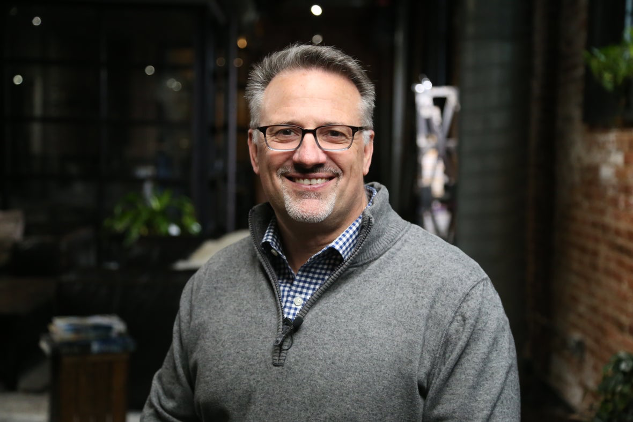
Leading Change DMin Cohort (Pasadena)
APPLICATION DEADLINE: Jan 26, 2024
OVERVIEW
In a rapidly changing world, the primary task of leadership is to energize a community of people toward their own transformation in order to meet the challenges of the uncharted terrain before them. It is what Ronald Heifetz calls “adaptive leadership” and defines as “the practice of mobilizing people to tackle tough challenges and thrive.” Transformational Leadership is the product of a leader’s own personal competency, relational congruence and adaptive capacity.
The key thought is this: Transformational Leadership is absolutely dependent on the leader’s own ongoing transformation and ability to lead others into a process of shared transformation through ongoing learning and navigating loss.
Cohort Overview

YEAR ONE (16 units)
Reading and In-Person Seminar (LD703A): May 29-June 5, 2024 (6 Units; Pasadena, CA)
Doctoral Project Research (DM709): Jun-Sep, 2024 (4 Units; Online)
Writing Course (LD703B): Sep-Dec, 2024 (6 units; Online)
Part 1: Biblical and Theological Foundation of Leadership
The first year introduces the core concepts of the cohort and explores the critical difference between ‘stewardship’ and ‘leadership'. We will examine a definition of Leadership as a process of personal-communal growth in a changing environment, exploring competing views along the way. This class will feature a biblical and theological overview of leadership as an overlooked and often misunderstood concept in the Christian tradition. Concepts to explore include: Leadership and the Mission of God, Leadership as Role vs. Function, Leadership vs. Stewardship, Leadership as a Missional Necessity, Leadership and Public witness.
Part 2: Transformational Leadership begins in Technical Competence
In addition, the student will explore the necessity of developing credibility through personal and technical competence as a prerequisite for leadership. This class will feature a discussion of the core competences of missional and pastoral leadership and their role in a transformational process in a changing world. While traditional pastoral competences will be examined, emerging and often overlooked ones (governance, team building, experimentation, vision casting) will be explored.
YEAR TWO (16 units)
Reading and In-Person Seminar (LD707A): June 2-6, 2025 (6 Units; Pasadena, CA)
Doctoral Project Research (DM710): Jun-Sep, 2025 (4 Units; Online)
Writing Course (LD707B): Sep-Dec, 2025 (6 units; Online)
Relational Congruence and Trustworthy Leadership
John Calvin began his Institutes by declaring that all “True and sound wisdom” came from the “knowledge of God and of ourselves.” This second Section will look at the spiritual, psychological and emotional capacities necessary for effective leadership. While leadership begins in “Technical Competence”, it is validated in the leader’s “Relational Congruence”. This week of study will take the leader through exercises and discussion about his or her own internal and external congruence, sense of self, and the spiritual resources necessary for healthy leadership. The Ignatian Spiritual Exercises will be introduced and practiced during these two weeks of classes.
YEAR THREE (16 units)
Reading and In-Person Seminar (LD715A): June 1-5, 2026 (6 Units; Pasadena, CA)
Writing Course (LD715B): Jun-Sep, 2026 (6 Units; Online)
Doctoral Project Research (DM706): Sep-Dec, 2026 (4 units; Online)
Adaptive Capacity and Transformational Leadership
The particular temptation for leaders engaging in adaptive leadership is to believe that knowledge of the concepts of Adaptive Leadership is sufficient to bring organizational transformation. In fact, reliance upon knowledge is a classic expression of ‘work avoidance’. Year Three will take an in-depth look at the practices of adaptive leadership with a study of verbatim case studies that come from student’s project. Some key process skills to be explored include Identifying Adaptive Challenges, The Observations-Interpretations-Interventions model, the necessity of healthy conflict, and the use of a Transformation Team to institutionalize the desire change. In addition, this year will feature online peer-peer and professor-student coaching conversations.

t. 626-584-5203
bolsinger@fuller.edu
INSTRUCTOR
Tod Bolsinger, PhD, MDiv
Senior Congregational Strategist, Executive Director of the De Pree Center Church Leadership Institute
Senior Fellow of the De Pree Center for Leadership
Associate Professor of Leadership Formation at Fuller Theological Seminary
Tod Bolsinger, MDiv, PhD is the founder of the Fuller Leadership Platform, an innovative approach to online formation and leadership development, and served as a Vice President of Fuller Seminary for six years. Prior to his educational career, he served as a pastor for 27 years.
Tod is the author of five books, including the Outreach Magazine Resource of the Year in pastoral leadership, Canoeing the Mountains: Christian Leadership in Uncharted Territory, and the Christian Book Award Finalist, Tempered Resilience: How Leaders are Formed in the Crucible of Change.
Tod is also the co-owner and principal of AE Sloan Leadership, Inc, an executive coaching and consulting firm that works with church, non-profit, and marketplace leaders in leading change. He is married to Beth, an executive coach, consultant and professional artist. They have two adult children, Brooks and Ali, and a son-in-law, Ben. An avid outdoor lover, if he hadn’t taken biology after lunch in high school, Tod would have been a National Park Ranger. When he retires, he is going to do hiking trail maintenance, trout rescue, and be a ski host who makes sure there are four people on every quad chair lift.
He can be reached at bolsinger@fuller.edu.
CONTACT THE DMIN OFFICE FOR MORE INFORMATION on the cohort.
